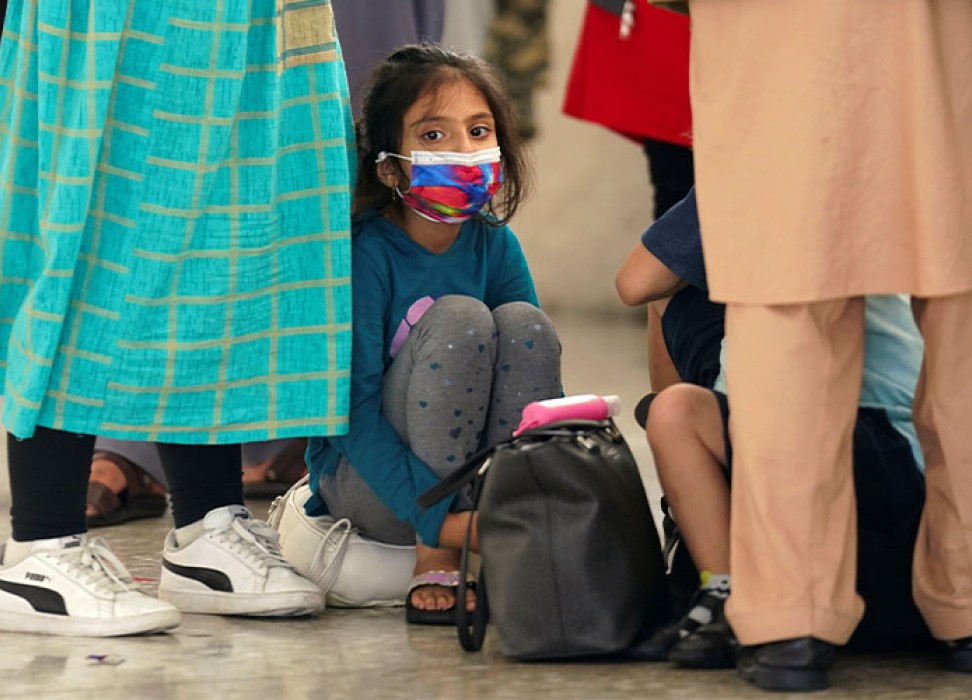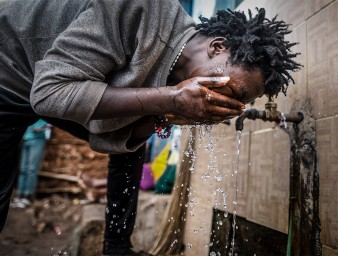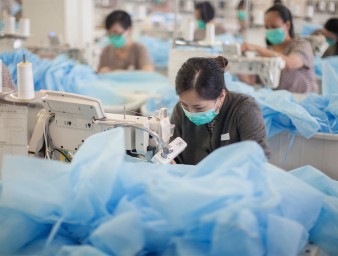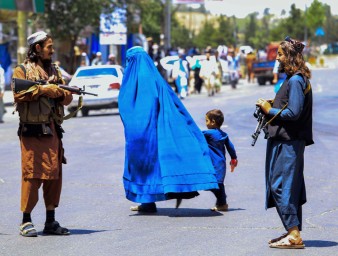Address the full gamut of rights for women and girls’ in conflict situations, Bachelet urges the Council
11 October 2021

“In conflicts and disasters, women and girls – already burdened by wide-ranging discrimination – often face heightened vulnerability and even deeper discrimination,” said UN Human Right chief, Michelle Bachelet. “Insecurity and displacement also fuel increased sexual and gender-based violence, as well as other crimes and human rights violations such as trafficking, child, early and forced marriages, or denial of access to sexual and reproductive health services.”
Bachelet was speaking at the Human Rights Council in Geneva where she presented a review of the Council’s work on the issue of women and girls in conflict and post-conflict situations, as part of the intergovernmental body’s efforts to better address their human rights in those contexts.
The analytical report she presented comes at a time when the UN human rights system is marking the 20th anniversary of Security Council resolution 1325 on women and peace and security, which reaffirmed the need to fully implement the international and humanitarian law that protects the rights of women and girls during and after conflict.
Bachelet’s report highlights that, from 2015 to 2021, the intergovernmental body adopted some 120 resolutions linked to the issue, which represents 20 per cent of resolutions adopted during that period. However, the Universal Periodic Review addressed only seven percent of the 500 recommendations concerning conflict-affected countries relating to the human rights of women and girls in conflict and post-conflict situations.
Bachelet highlighted the importance of adopting an intersectional approach to ensure that no women or girls are left behind. “For instance, some focussed on protection needs of internally displaced women and girls or of women and girls with disabilities,” she said. “Many such resolutions also recognize the continuum of violations that women and girls suffer, including due to the breakdown of rule of law or to stigma associated with sexual and gender-based violence.”
Bachelet’s further analysis of the reports of the 13 thematic mandates of the Council, highlighted the need to consider the “intersectional and aggravating factors of discrimination faced by women and girls, including in protection and reparation programmes.”
The Council’s investigative bodies (like Commissions of Inquiry) have also documented gender discrimination and inequality, which disproportionately affect women and girls in conflict and post conflict settings. Bachelet emphasized the importance of addressing the root causes of sexual violence and the need for accountability and access to comprehensive health services for survivors. She cited as positive examples the reports on sexual and gender-based violence produced by the Commission of Inquiry on Syria and the International Fact-Finding Mission on Myanmar.
Bachelet, however, pointed to failings in addressing issues linked to certain rights of women and girls in conflict contexts. These include overlooking their rights to food, adequate housing, health - including sexual and reproductive health and rights -education, and equal participation in economic and public life.
Bachelet also highlighted other issues in need of further attention, including the negative impacts of illicit arms transfers; of the use of explosive weapons; and of abuses by non-State actors, including personnel of private security companies.
She also stressed that resolutions seldom take into account how gender-based discrimination shape women’s and girls’ experience of conflict, and that the type of issues addressed in those resolutions provide a “narrative still mainly reducing women's experience of conflict to victimization… In several UPR reviews, the majority of recommendations focused on sexual and gender-based violence against women and girls, with limited reference to issues such as participation, or sexual and reproductive health and rights.”
Bachelet reminded States that, in conflict and post-conflict situations, women play critical roles as human rights defenders, journalists, peace-builders, community leaders, and providers for the basic needs of their communities, including livelihoods, education and healthcare.
Bachelet encouraged the Council and its mechanisms to work closely with the Informal Expert Group on Women and Peace and Security, the Special Representative of the Secretary-General on Sexual Violence in Conflict, and the Special Representative of the Secretary-General for Children and Armed Conflict; and to strengthen its engagement with civil society organizations, including women’s organizations and women peacebuilders.
“A full understanding of women’s experience of conflict is critical for inclusive responses, and for promoting an enabling environment for women and girls in all their diversity to thrive and meaningfully participate in peace processes, peacebuilding, and recovery efforts,” she added. “It is also critical to build resilient societies and prevent further instability.”



